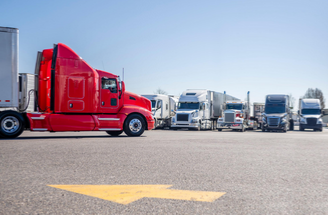Introduction
The trucking industry is the backbone of commerce, ensuring that goods reach their destinations across vast distances. Within this industry, owner-operators play a pivotal role by managing their own trucks and businesses. However, along with the freedom of being your own boss comes a set of responsibilities, including the need for comprehensive insurance coverage. In this article, we’ll explore the importance of owner operator insurance and delve into the broader topic of commercial trucking insurance.
Owner Operator Insurance: Protecting Your Investment
Owner operators are independent truck drivers who own and operate their trucks as small businesses. Whether you’re hauling freight locally or crisscrossing the country, Owner Operator Insurance is a vital investment. Here are some key aspects to consider:
- Liability Coverage: This type of insurance provides protection in the event you cause an accident that results in damage to another vehicle or injury to someone else. Liability coverage ensures that you won’t be personally responsible for covering these costs, which can be substantial.
- Physical Damage Coverage: Accidents can happen to even the most skilled drivers. Physical damage coverage, including collision and comprehensive insurance, helps repair or replace your truck if it’s damaged in an accident or by other means, such as theft or natural disasters.
- Cargo Insurance: Owner operators often transport valuable cargo. Cargo insurance covers the cost of damaged or lost goods while in your care, providing peace of mind for you and your clients.
- Bobtail Insurance: When your truck isn’t hauling a load, you may still need coverage. Bobtail insurance covers your truck when it’s not under dispatch or when you’re driving without a trailer attached.
- Non-Trucking Liability Insurance: Also known as “deadhead” coverage, this insurance protects you when you’re driving your truck for personal use and not on business duty.
Commercial Trucking Insurance: A Broader Perspective
While owner operator insurance focuses on the individual driver and their truck, commercial trucking insurance takes a more comprehensive approach. This type of insurance is typically intended for larger trucking companies but can also be relevant for owner operators working under a larger umbrella. Here are some essential components:
- Fleet Coverage: Commercial trucking insurance often covers an entire fleet of trucks. This means that multiple vehicles, each with their own unique needs, can be included under a single policy.
- Workers’ Compensation: For larger operations, workers’ compensation insurance is crucial to protect your drivers in case of injury on the job. This coverage helps pay for medical expenses and lost wages.
- General Liability: This aspect of commercial trucking insurance covers legal and medical expenses if a third party files a lawsuit against your company due to an accident or injury caused by one of your trucks.
- Regulatory Compliance: The trucking industry is heavily regulated. Commercial Trucking Insurance often includes coverage to help meet the various state and federal requirements, ensuring that your business operates legally.
- Hazardous Materials Coverage: If you transport hazardous materials, you’ll need specialized insurance to cover potential environmental damage and health risks.
Conclusion
Whether you’re an owner-operator or part of a larger trucking company, insurance is a non-negotiable aspect of your business. Owner operator insurance is tailored to the unique needs of independent truck drivers, while commercial trucking insurance provides a more comprehensive safety net for larger operations. In either case, the goal is the same: to protect your investment, your livelihood, and the safety of others on the road.
Before selecting an insurance policy, it’s essential to assess your specific needs and consult with insurance professionals who specialize in the trucking industry. By doing so, you can navigate the roads safely and confidently, knowing that you’re adequately covered in case of unexpected events.

